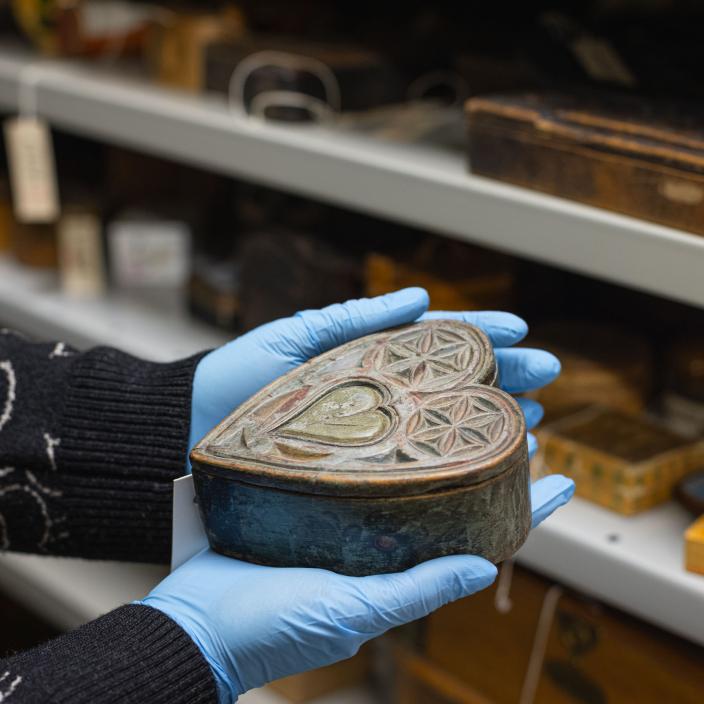The museum is preparing to move all its collections to a new collection centre. Due to extensive preparations for the move, the collections' customer service is closed. The closure of the customer service will apply to donations, information and research services, requests for materials, image orders and collection loans.
Expanding the collection
The focus of the museum's collections is on material relating to Turku and Southwest Finland.
The division of the museums' collections is nationally defined not only in regional terms but also thematically.
- Life and living: domestic food and drink culture
- Food industry: confectionery and canning
- Ceramic industry: furnace industry
- Service industries: pharmacies, pharmacy
- Textile and clothing industry: ready-made clothing
.
General information on donations
The acceptance of donations is always decided on a case-by-case basis. Proposals for donations are discussed by the collections team, which decides whether the material should be included in the museum's collections on the basis of the information provided and a possible image.
The donor may offer the museum individual objects, photographs, documents, scientific specimens or other material, or larger collections.
- The donor gives the museum full ownership, use and control of the donation free of charge. The donor must have the right to make the donation.
- On receipt of donations, a deed of gift is completed on the basis of the information provided, transferring ownership of the object to the recipient museum.
- The Museum does not accept depositions, i.e. materials that are stored at the Museum without the Museum acquiring ownership.
- The Museum has the right to screen the materials included in the donation. Any material that has been screened will not be returned.
- The Museum's collection services are closed and the acceptance of donations is suspended due to preparations for the move to the Collection Centre.
- The material is from outside the Turku and Southwest Finland region or outside the storage responsibility.
- The background and history of the material is not known, which means that the material cannot be used for exhibitions, teaching or research.
- The material is in too poor condition or otherwise difficult to preserve and use.
- The material is better suited to another museum or collection.
- There is similar material in existing collections and the subject area is already well represented.
- The museum does not accept donations with special conditions.
- Please contact the museum in advance, preferably by e-mail. If you contact the museum by telephone, be prepared to be as specific as possible about the quality and history of the material you are offering.
- Be prepared to visit the museum to sign a donations deed and give information about the object. Information about the history of the use and ownership of the object or material will add substantially to its museum value.
- When you present an object to the museum, it is advisable that it be in as original a condition as possible. Do not clean, wash, or repair it.
- An appointment will be made with the museum's collections staff to arrange the donation. Donations are not accepted in the museum's exhibition spaces/exhibition venues.
Donation of works of art
The works of art donated to the City of Turku's institutions will be incorporated into the City of Turku's art collection, with WAM Turku City Art Museum taking responsibility for their documentation, maintenance and conservation.
Works donated to the city's institutions will be included in the City of Turku Art Collection if their artistic quality is sufficiently high. The donated work always retains a permanent place in the department that received the donation.
Donating photos
You can donate photos to the Turku City Museum's photo collection. In addition to views of the city, we want to record a wide range of life and its diversity in different forms. Photographic material related to Turku and the Southwest Finland region is the focus of the collection.
When receiving photographs, it is a good idea to collect as much information as possible. The photographer, the time and place of the photograph, the people in the picture, other information related to the subject of the picture and the previous history of the picture are important.
A photograph as a visual object without any background information can be just as valuable. Often a picture is worth a thousand words!
Please note that when you donate photos, you must have ownership of them.When offering a donation, we will assess the photographic and cultural-historical significance of the material and its suitability for the focus of the collections.
Donations or donations of rights of use are subject to contract.
